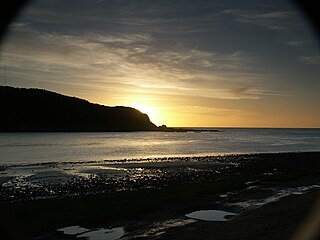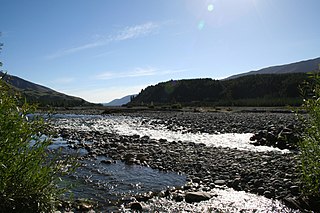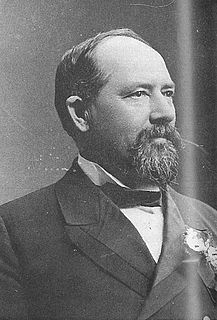Related Research Articles

The Wairau Affray of 17 June 1843, also called the Wairau Massacre in older histories, was the first serious clash of arms between British settlers and Māori in New Zealand after the signing of the Treaty of Waitangi and the only one to take place in the South Island. The incident was sparked when a magistrate and a representative of the New Zealand Company, who held a possibly fraudulent deed to land in the Wairau Valley in Marlborough in the north of the South Island, led a group of European settlers to attempt to clear Māori off the land and arrest Ngāti Toa chiefs Te Rauparaha and Te Rangihaeata. Fighting broke out and 22 British settlers were killed, nine after their surrender. Four Māori were killed, including Te Rongo, who was Te Rangihaeata's wife and Te Rauparaha's daughter.

Ngāti Toa, Ngāti Toarangatira or Ngāti Toa Rangatira, is a Māori iwi (tribe) based in the southern North Island and in the northern South Island of New Zealand. Its rohe extends from Whanganui in the north, Palmerston North in the east, and Kaikoura and Hokitika in the south. Ngāti Toa remains a small iwi with a population of only about 4500. It has four marae: Takapūwāhia and Hongoeka in Porirua City, and Whakatū and Wairau in the north of the South Island. Ngāti Toa's governing body has the name Te Rūnanga o Toa Rangatira.

Alfred Domett was the fourth premier of New Zealand, a close friend of the poet Robert Browning and author of the epic poem Ranolf and Amohia, a South Sea Day Dream. Born in England, he emigrated to New Zealand in 1842 and remained there for a further thirty years, holding many significant political posts.

The Sterling submachine gun is a British submachine gun (SMG). It was tested with the British Army in 1944–1945 as a replacement for the Sten but it did not start to replace it until 1953. A successful and reliable design, it remained as standard issue with the British Army until 1994, when it began to be replaced by the L85A1 assault rifle.

The Wairau River is one of the longest rivers in New Zealand's South Island. It flows for 170 kilometres (110 mi) from the Spenser Mountains, firstly in a northwards direction and then northeast down a long, straight valley in inland Marlborough.

Ann Patchett is an American author. She received the 2002 PEN/Faulkner Award and the Orange Prize for Fiction in the same year, for her novel Bel Canto. Patchett's other novels include The Patron Saint of Liars (1992), Taft (1994), The Magician's Assistant (1997), Run (2007), State of Wonder (2011), Commonwealth (2016), and The Dutch House (2019). The Dutch House was a finalist for the 2020 Pulitzer Prize for Fiction.
Michael Jay Tarses is an American television writer, producer, screenwriter, actor. He created and produced The Days and Nights of Molly Dodd and The Slap Maxwell Story, co-created Buffalo Bill, and was an executive producer for The Bob Newhart Show.
The following lists events that happened during 1843 in New Zealand.

William Henry Eyes was a British-born, New Zealand politician who was the fifth Superintendent of the Marlborough Province, and who represented the Wairau electorate in the New Zealand House of Representatives for many years. Born in England, Eyes had emigrated to Australia in 1839. He was jailed at Parramatta Gaol for a year before he was pardoned, after which he immediately emigrated to New Zealand.

Charles Houghton Mills was a member of parliament for Waimea and Wairau, in the South Island of New Zealand.

Wairau Valley is the valley of the Wairau River in Marlborough, New Zealand and also the name of the main settlement in the upper valley. State Highway 63 runs through the valley. The valley opens onto the Wairau Plain, where Renwick and Blenheim are sited. The Alpine–Wairau Fault runs along the length of the valley.

Tuamarina is a small town in Marlborough, New Zealand. State Highway 1 runs through the area. The Tuamarina River joins the Wairau River just south of the settlement. Picton is about 18 km to the north, and Blenheim is about 10 km to the south.
Wairau may refer to:
Wairau was a parliamentary electorate in the Marlborough Region of New Zealand. It was one of the initial 24 New Zealand electorates and existed from 1853 until its abolition in 1938, when it was succeeded by the Marlborough electorate. The electorate had 13 representatives during its existence. The 1861 election in the Wairau electorate was notable in that a later Premier, Frederick Weld, was unexpectedly and narrowly defeated by William Henry Eyes.

William Acton Blakeway Adams, known as Acton Adams, was a 19th-century Member of Parliament from Nelson, New Zealand.
McEvoy Motorcycles was a British motorcycle manufacturer based in Derby. The company used engines from Villiers, Blackburne, British Anzani and JAP. The company ceased trading in 1929 when the financier Cecil 'Archie' Birkin was killed in an accident at the Isle of Man TT.
Patchett is a surname. Notable people with the surname include:

The Wairau by-election 1872 was a by-election held in the Wairau electorate during the 5th New Zealand Parliament, on 19 February 1872. The by-election was caused by the resignation of incumbent MP William Henry Eyes and was won by Arthur Seymour, who defeated Joseph Ward. Both candidates were prominent Marlborough politicians, and for both of them, this was their first attempt at election to the General Assembly.
Susannah Noon was the first known female convict emancipist from New South Wales to settle in the South Island of New Zealand.
Tuamarina Cemetery is one of the largest cemeteries in the Marlborough Region of New Zealand. The cemetery out dates Omaka Cemetery and has been open to the public for burials since 1866 despite the burials of twenty two men there in 1843.
References
- Whyte, Carol (2001). "Wairau Massacre - Sat 17 Jun 1843". Archived from the original on 27 October 2009. Retrieved 28 September 2007.